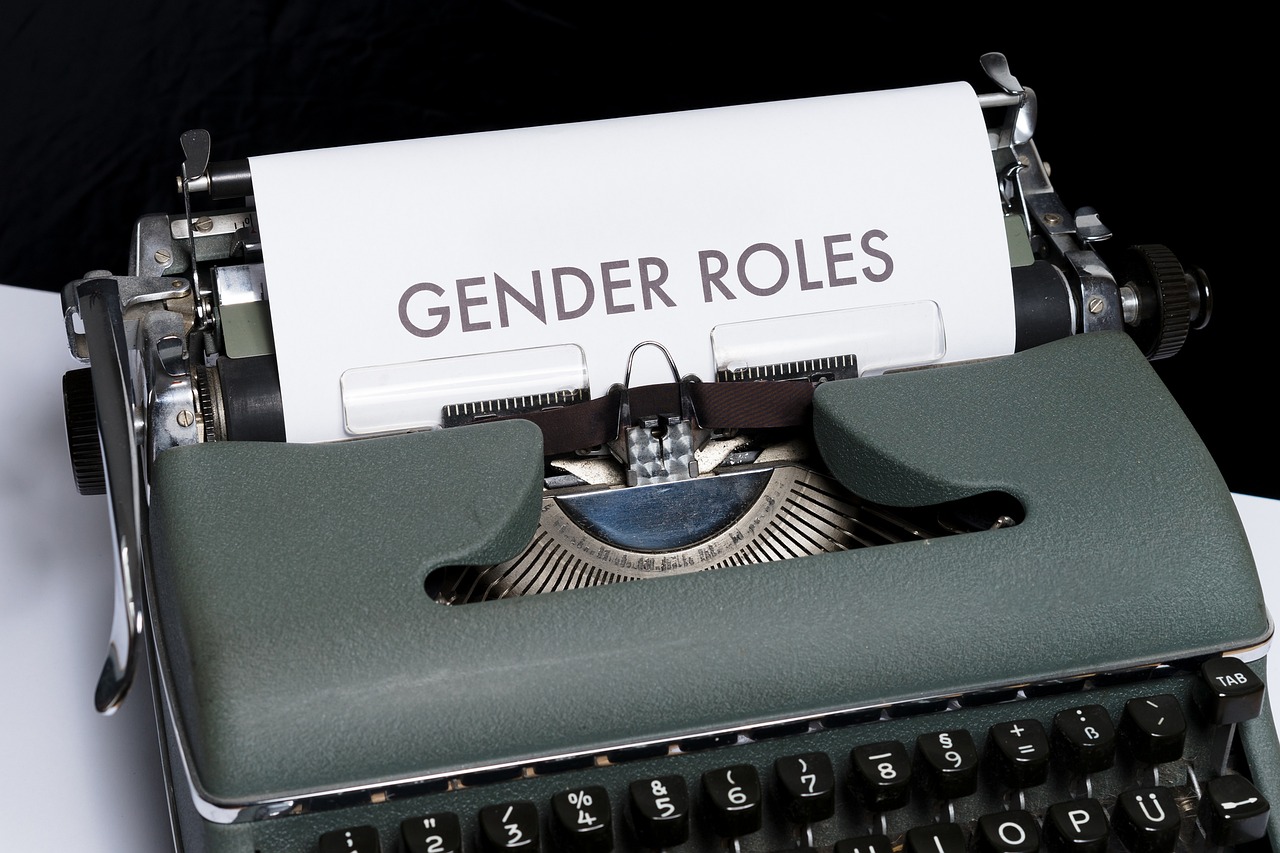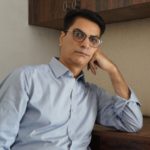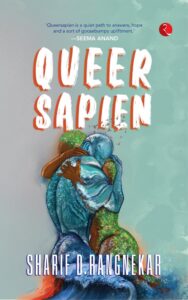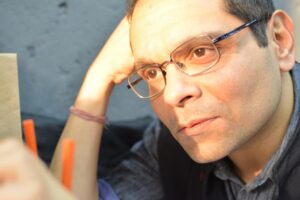
Literary Speaking: Strengthen ‘queer folks’
 By Ranjit Monga*
By Ranjit Monga*
 We need laws, anti-discriminatory laws, across the board, because that is how you will strengthen queer folks, and that is how you will also make children, educators, public policy folks and families more sensitive, says queer activist and author Sharif Rangnekar.
We need laws, anti-discriminatory laws, across the board, because that is how you will strengthen queer folks, and that is how you will also make children, educators, public policy folks and families more sensitive, says queer activist and author Sharif Rangnekar.
Sharif is the author of two books ‘Straight to Normal: My life as a gay man’ and the more recent ‘Queersapien’, which explores the idea of love, equality, dignity, nature, and freedom from a queer perspective. The beauty of this perspective lies in the similarity it shares with the experience of all marginalised sections of society.
“The book has so many layers to it, such as economics, new liberalism, media capitalism, and its forms, and the treatment of women in the city of Delhi. These are explained through comparison with the situation which exists in Thailand,” says Sharif.
Sharif Rangnekar is multifaceted. He is a former mainstream journalist; a communication consultant and a singer-songwriter of the music band ‘Friends of Linger’. He is also the founder-director of the Delhi Queer Literature Festival.

The book describes his journey to find love as he meanders through Bangkok and Pattaya and observes the society as it exists there. He feels liberated and elated but the feelings are combined with a sense of loss as he compares them to his life in India.
“In Bangkok, I saw a world that I had never experienced. And it was not necessarily just only about a sex market, but it is just the whole idea, that women are safe at any hour, people seem to be least bothered about who wears what, what they are doing, and what hour it is. There was a sense of freedom, there was an energy, there was a spirit, and I was just totally overwhelmed and in awe,” Sharif explains.
‘Queersapien’ is a sort of continuation of his earlier book which was an autobiography. In this, he reflects upon his life and ensures that he learns from his experiences and broadens his vision. To him, Delhi, after his numerous trips to Bangkok described in the book, looked more and more like a jail. “To return to it and to suddenly go back into a cocoon, go back into, you know, into constraints, into trying to fit in. Thailand just taught me that every moment I was losing out on life,” he elaborates.
And perhaps that realisation hit him the most when he broke up with his love interest Non, who is from Bangkok and visits Sharif for a few days.
“Non was so important. In so many ways he held up a mirror to me by pointing out all the things which were ‘wrong’ in Delhi from his point of view. I was a bit defensive because you don’t like someone to come and tell you that your city lacks the kind of space you need to thrive when it comes to love, when it comes to relationships such as ours. It was sort of a wake-up call. And when he went away and said these are reasons why we cannot be together, it hurt a lot,” says Sharif.
Non’s observations were that he hardly saw women working and that at a social gathering women invariably sat in one group and men in another. He was also upset by the treatment of people in general, the rich bargaining endlessly with the hawkers on the street, and how women who left after a late-night party, had to be tracked to ensure that they reached home safely. These things were alien to him and he communicates to Sharif that they could not be together because of these things.
“I was heartbroken. It took me a long while to make sense of everything that he had said, you know, because we all got used to living in a certain way and then we start denying things that we actually are missing out on. We try to create a world within those constraints and learn to live within that. So that the Non chapter was like a turning point for me,” says Sharif.
Sharif describes the situation for a gay or LGBT person as ‘just horrible’.
“You have to hide your sexuality. When you just can’t let yourself go and be who you are, you are perpetually hiding, living in fear that if someone finds out, they may destroy your reputation and your dignity. And that could lead to all kinds of things, it could lead to families throwing you out, it could lead to abuse by kids in your age group in schools and colleges,” he says and adds “We know about R V Malhotra, who last year died of suicide and his school principal, and the teacher didn’t do anything. So that helplessness, that sort of fear if you start coming out or you start appearing like what the stereotypical description is of a gay person. That fear is very difficult to describe. And I said it in my book also that I don’t have a sentence or even ten sentences to try and explain what that fear is like,” Sharif narrates.
Sharif feels that educators must spread awareness about gender and sexuality at the school level. “That’s where attitudes can be changed. For our generation, we have lived our lives, but for the younger generation who are coming out much earlier than we did because they have enough reference points, so now they need to talk about gender and sexuality. Very recently, ‘Nazaria QFRG’, a queer feminist collective, has come out with three books in English and in Hindi for kids,” Sharif informs.
“A person belonging to the LGBTQIA+ community should be treated like anyone else. Any conversation has to be very typical, normal conversations that you would have with anyone else. You should not focus entirely on someone’s sexuality. We make friends because of the value, because of common interests. And let a person talk about himself when he is comfortable to do so. Never ask that question. It is too private; It is too personal. Let them come out when they want to. Treat them like you want to know them because you might give them that much comfort and confidence to come and tell you, listen, I am gay, you know, or I am lesbian, I am bi, or non-binary or whatever the person is. You would have done one of the most beautiful acts. And then you have to hold that secret very carefully, very tenderly,” says Sharif.
“I do find that a certain section of the millennials are coming out really early as compared to our generation. And they will not tolerate the assumptions and unconscious biases that heterosexual folks carry. You know they will not tolerate a certain kind of language or misgendering, as we say,” Sharif opines.
“We need laws and also a more sensitive and more inclusive media. We need to see more people from our community out there. We need that change more consistently happening in the narratives of cinema, they need to be more realistic, and more authentic about our lives in showing the trials and all the triumphs that we go through. We should not beat around the bush at all. I think there is no time for that anymore because people lose lives in that waiting,” says Sharif and adds that while writing his earlier book ‘Straight to Normal’ he realised that 50 years of his life had gone, and it was difficult to find love because most of his time went in just trying to be safe and trying to be free.
“I do not think our lives need to be wasted like that just because some people cannot digest the truth. We are very much part of nature. And nature has so many different forms, so it is about self-actualisation. And it is one of the most beautiful things and I would wish everyone whether they are straight or queer, should find love,” adds Sharif.
Listen to the full interview on Spotify
On Apple podcasts
https://podcasts.apple.com/in/podcast/books-and-us/id1688845897?i=1000621486015
*Ranjit Monga is a senior journalist and documentary filmmaker





